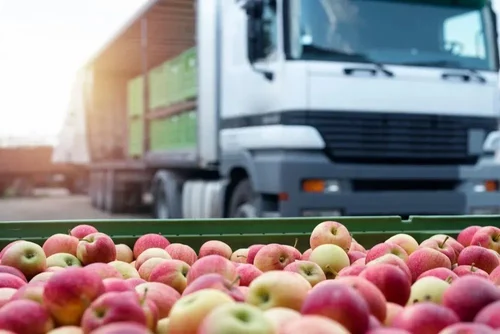Introduction:
In a world increasingly conscious of its ecological footprint, the transportation industry faces the imperative to evolve towards sustainability. This blog delves into the strategic advantages that come with adopting sustainable practices in the transportation of fresh fruits. From minimizing environmental impact to meeting consumer demands, sustainable fruit transportation brings forth a range of benefits that position businesses for long-term success.
1. Enhancing Environmental Stewardship
Reduced Carbon Footprint:
Sustainable fruit transportation embraces eco-friendly technologies, such as electric or hybrid vehicles, and explores alternative fuels. By doing so, companies can significantly reduce their carbon footprint, contributing to global efforts to combat climate change.
Smart Logistics:
Implementing intelligent logistics systems helps optimize transportation routes, reducing unnecessary mileage and fuel consumption. This not only lowers operational costs but also minimizes the environmental impact of the transportation process.
2. Meeting Consumer Demands:
Aligning with Consumer Values:
Modern consumers are increasingly environmentally conscious and seek products with a lower ecological footprint. Companies that prioritize sustainable fruit transportation align with consumer values, gaining a competitive edge in a market where conscious consumerism is on the rise.
Market Differentiation:
Sustainability has become a powerful tool for market differentiation. Businesses that emphasize their commitment to sustainable practices in transportation can stand out in a crowded marketplace, attracting environmentally conscious consumers and fostering brand loyalty.
3. Reducing Costs and Enhancing Efficiency:
Energy Efficiency:
Investing in energy-efficient transportation technologies not only reduces environmental impact but also lowers operational costs. Sustainable practices, such as using fuel-efficient vehicles, contribute to long-term financial savings for companies.
Waste Reduction:
Smart logistics, combined with sustainable packaging solutions, helps minimize product waste during transportation. This waste reduction not only benefits the environment but also improves overall supply chain efficiency.
4. Mitigating Risks and Enhancing Resilience:
Adaptation to Regulatory Changes:
As governments worldwide intensify their focus on environmental regulations, businesses that proactively adopt sustainable transportation practices are better positioned to adapt to future changes in regulatory frameworks.
Climate Resilience:
Sustainable fruit transportation contributes to climate resilience. By reducing dependency on fossil fuels and adopting technologies resilient to climate-related disruptions, businesses can better navigate the challenges posed by a changing climate.
- 5. Building Stronger Partnerships:
Supplier and Retailer Relationships:
Companies that prioritize sustainability in fruit transportation build stronger relationships with suppliers and retailers. As sustainability becomes a shared goal across the supply chain, collaborative efforts can lead to more efficient and environmentally responsible transportation solutions.
Industry Collaboration:
Engaging in industry collaborations for sustainable transportation initiatives fosters a sense of shared responsibility. Businesses that actively participate in these initiatives not only contribute to broader sustainability goals but also position themselves as leaders within the industry.
6. Future-Proofing for Changing Consumer Preferences:
Anticipating Trends:
Sustainable fruit transportation is not just a current trend; it represents a fundamental shift in consumer preferences. Companies that embrace these changes early on are better equipped to anticipate and adapt to evolving market dynamics.
Investor and Stakeholder Confidence:
Sustainable practices can instill confidence in investors and stakeholders. Businesses that prioritize sustainability are viewed as forward-thinking and resilient, attracting investment and partnerships that contribute to long-term success.
Conclusion:
Strategic advantages for sustainable fruit transportation extend beyond environmental responsibility; they encompass a holistic approach to business that addresses evolving consumer expectations, regulatory changes, and the imperative for long-term resilience. As businesses navigate the complexities of the modern marketplace, those that integrate sustainability into their transportation practices not only contribute to a healthier planet but also position themselves as leaders in an industry where strategic foresight is key. In embracing sustainable fruit transportation, businesses drive positive change, foster innovation, and create a roadmap toward a more environmentally responsible and prosperous future.
